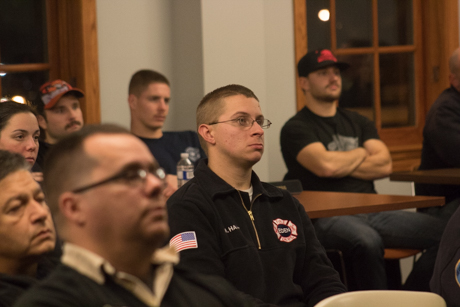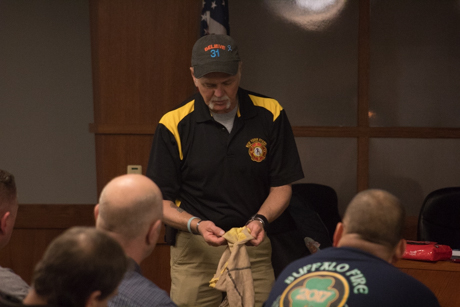As friends and customers have found out her plans, people have told Kathy Ferrara, "This must have been your dream all along" -- becoming owner of Batavia's Original.
That's not the case, said Ferrara yesterday, hours after closing a deal with the previous owner, Jeff Reddish, of Rochester, to buy the popular local restaurant.
"I never planned on buying it," Ferrara said. "I just enjoyed what I did. I did it 100 percent. I was trustworthy. This wasn’t my plan. It was definitely that God wanted me here. I’ve tried leaving a couple of times and He made it really clear that this is where I’m supposed to be. He made this happen so only good things are going to come from that."
Before Batavia's Original was Batavia's Original, it was Pontillo's, Batavia's first pizza parlor, and Ferrara started working for Sam and Betty Pontillo 29 years ago as a waitress.
Sam and Betty, she said, took her under their wings and taught her the pizza business from top to bottom. She was trained in every job in the restaurant.
By the time Sam and Betty's sons took over, she was a manager.
When that business collapsed in 2010, Ferrara was the one who broke the news to the staff.
When Reddish bought the business and the building at 500 E. Main St. out of bankruptcy, it was Ferrara that Reddish called to run the business.
"Jeff Reddish taught me the ins and outs of the business," Ferrara said. "He taught me how to make payroll and meet food costs together. He was a good teacher. He was great to work for, a really good boss, fair, basically let me do things the way we've been doing all these years."
Earlier this year, Ferrara asked Reddish, who owns restaurants in Rochester, if she could become a partner in the Batavia location.
"He wasn’t looking to sell," Ferrara said. "He wasn’t going to put it on the market. That wasn’t in his plan at all. I approached him and he said ‘I’m not looking to sell, but I would sell it to you.’ He’s the one who got the ball rolling and made it happen.”
Ferrara is a graduate of Pembroke High School and Genesee Community College. She is married with three children, Ashley, Mary-Grace, and Daniel, and one grandson.
Local ownership of the restaurant is important to Ferrara, she said. She will have more control over local promotions, support of local charities and organizations, and who she hires as vendors.
"Now that it is locally owned again, that makes a big difference," Ferrara said. "Everybody I’ve dealt with so far, the website designer, maintenance, plumbers, they’re all local. So everything is back local, in Genesee County, so that only helps the community."
She will keep the name, Batavia's Original, picked after Reddish learned he couldn't retain the name Pontillo's. Ferrara said it only makes sense.
"This is the original pizza of Batavia," she said. "It’s the same recipe. We haven’t changed any of the recipes."
The return of Pontillo's/Batavia's Original to local ownership will be celebrated with a ribbon cutting at noon on Saturday.
Ferrara said she will also continue Sam and Betty's tradition of taking good care of the staff and ensuring restaurant guests get great service.
"Everybody is treated fairly," Ferrara said. "It’s a fun environment to work. I always work around their schedules. The staff is mostly college students and high schoolers."
Being able to do more for the staff of 35 employees is another reason Ferrara was motivated to buy the business, she said. Taking care of employees pays off in better customer service.
"Anybody who comes here to eat will always leave with a good experience," Ferrara said. "Everyone who works here gives 100 percent. I get compliments all day long about the staff. People say they look like they love it here and they do. That’s something the Pontillos taught me, is how to treat the staff. Sam and Betty treated everybody like family."
Photos by Steve Ognibene.








































